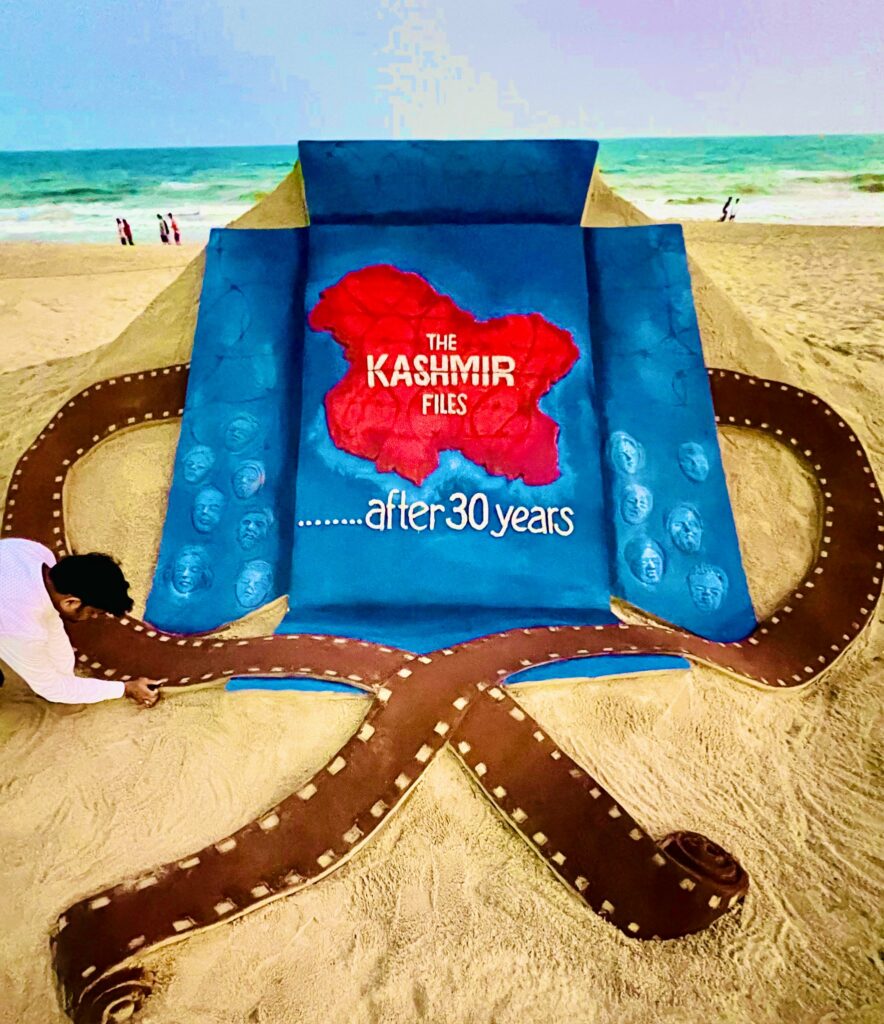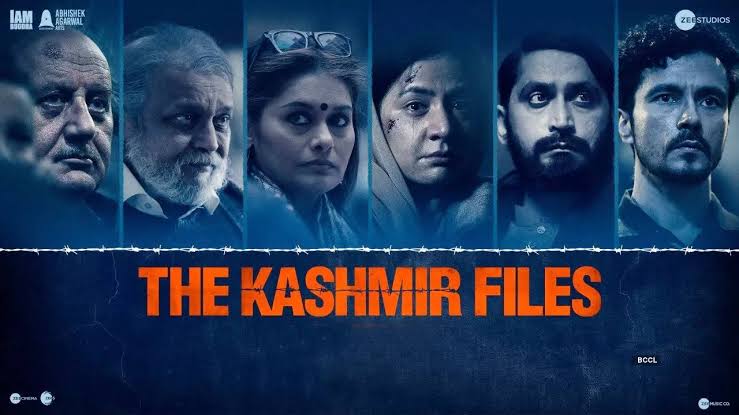
No fancy foreign locations or masala songs. There is neither the customary breathtaking views of Kashmir nor is it an art film. Yet, the film keeps you on the edge of your chair and leaves you speechless. The story of Kashmiri Pandits makes you numb and as an Indian, you will be ashamed for not knowing their true history. The director, also a co-producer, Vivek Agnihotri has to be appreciated for his courage to bring the truth of the Kashmiri Pandit genocide on screen. The Bollywood mafia hated him ever since his ideological transformation. Standing firmly with the truth of the Kashmiri Pandit community made him stand apart. The mainstream Bollywood had cold-shouldered Vivek Agnihotri for his earlier films ‘Buddha in a traffic jam’ and ‘Tashkent files’. But today his passion for serious dramas and bringing the truth out of hitherto hidden episodes from history is changing the equations in Bollywood, including commercial success.
Plot
The film breaks the myth propagated by the Left ecosystem that the incidents that occurred in Kashmir during the 1990s were merely an exodus. The characters while narrating the incidents make it clear that it was not an exodus but a genocide. Further, the director who himself belonged to the Left brigade in the past, excellently showcases the way the agenda was disseminated and how narrative building occurs in academic institutions.
The cinema narrates the story of headmaster Pushkarnath (Anupam Kher) who loses his family during the genocide of pandits and the way he was forced to leave Kashmir with the only other person alive in his family, his grandchild Krishna (Darshan Kumar). The latter is brainwashed in college by a professor (Pallavi Joshi) with respect to Kashmir. Krishna eventually discovers the truth of the horrific events his family had to endure during the period of the genocide, including a massacre. The entire cinema is an account of a series of true incidents connected by a story. The Nadimarg massacre, killing of IAF officers, kidnap and execution of Kashmiri poet Sarwanand Koul Premi and his son, murder of Sathish Tikkoo, an RSS volunteer and the barbaric killing of Girija Tikkoo have been depicted in fictionalised accounts of the same events. It is the portrayal of these incidents that touches the viewer emotionally.
Making of the film
The film is well made technically too. The background score stays true to the mood of the plot and ensures that the attention of the audience stays with the story. Cinematography and editing deserve appreciation for highlighting the temperament of the plot with suitable shades of light and dark. The team has done extensive research which has been reflected in the script and the screenplay. The dialogues are sharp, drawing the viewer to the story and keeping them glued to the screen. However, in some scenes, the filmmakers have lost the opportunity to subtly convey a message without conversations. It is in these few acts that the film loses out on utilizing the artistic brilliance in filmmaking.
The performance of the artists is par excellence and makes a film a masterpiece in this aspect. Anupam Kher, who himself is a victim of the genocide, says he did not just act but relived the role. The performance of Mithun Chakraborty, Darshan Kumar, Prakash Belavadi adds to the sentiments while that of Pallavi Joshi and Chinmay Mandlekar who play negative characters have been applauded by the audience.

While the movie-making itself is extraordinary, the effort, bravery, dauntless approach shown by the team to show the truth is truly exceptional. The makers had to face threats, fatwas, legal complications, Bollywood mafia and conspirators to stop them from releasing the film. Despite all this, the cinema was released and has become the talk of the town. The film has not just given a voice to the sorrow of the Pandits but has also given courage to people and media to openly stand in solidarity with their pain. It is not easy to speak the truth when the whole world is against you. Yet, the director dared to tell one and people have welcomed it with open hearts and minds. This is the true success for the director and the team. However, as I write this review, the film has also found commercial success and has joined the 100 crore club. Ensuring that a film is both commercial success and conveying bitter truth without sugar-coating is indeed a herculean task. Nevertheless, Vivek Agnihotri and their team, having achieved both, have said that the returns from the film would be used for the rehabilitation of Pandit families in Kashmir.
Response from public
Several incidents showcased in the film that occurred in the 1990s in Kashmir are now being shown and debated in the mainstream media after the film was released and became a success. The Pandit community is coming forward to narrate their personal experiences of the era. Videos from the theatres showing the audience in tears, expressing anger for the truth being hidden all these years, and many conveying their remorse for not knowing the truth have become viral on social media. This shows the impact the movie has on the general public.
A wise man once said that any art form, be it cinema or drama or performing arts, has to fill the vacuum in the minds and calm the disturbed hearts. The Kashmir Files has made this possible. Actor and thinker Prakash Belavadi during one of the interviews said that the first step in the process of reconciliation was the removal of article 370. The next step he said is to use the medium of cinema to narrate many such concealed truths to people and ensure that it reaches the maximum number of people. The final step in the process Belavadi says is to rehabilitate the Pandits back in the valley and ensure that they get the justice that they deserve but has been delayed.
(The views and opinions expressed are author’s own)
